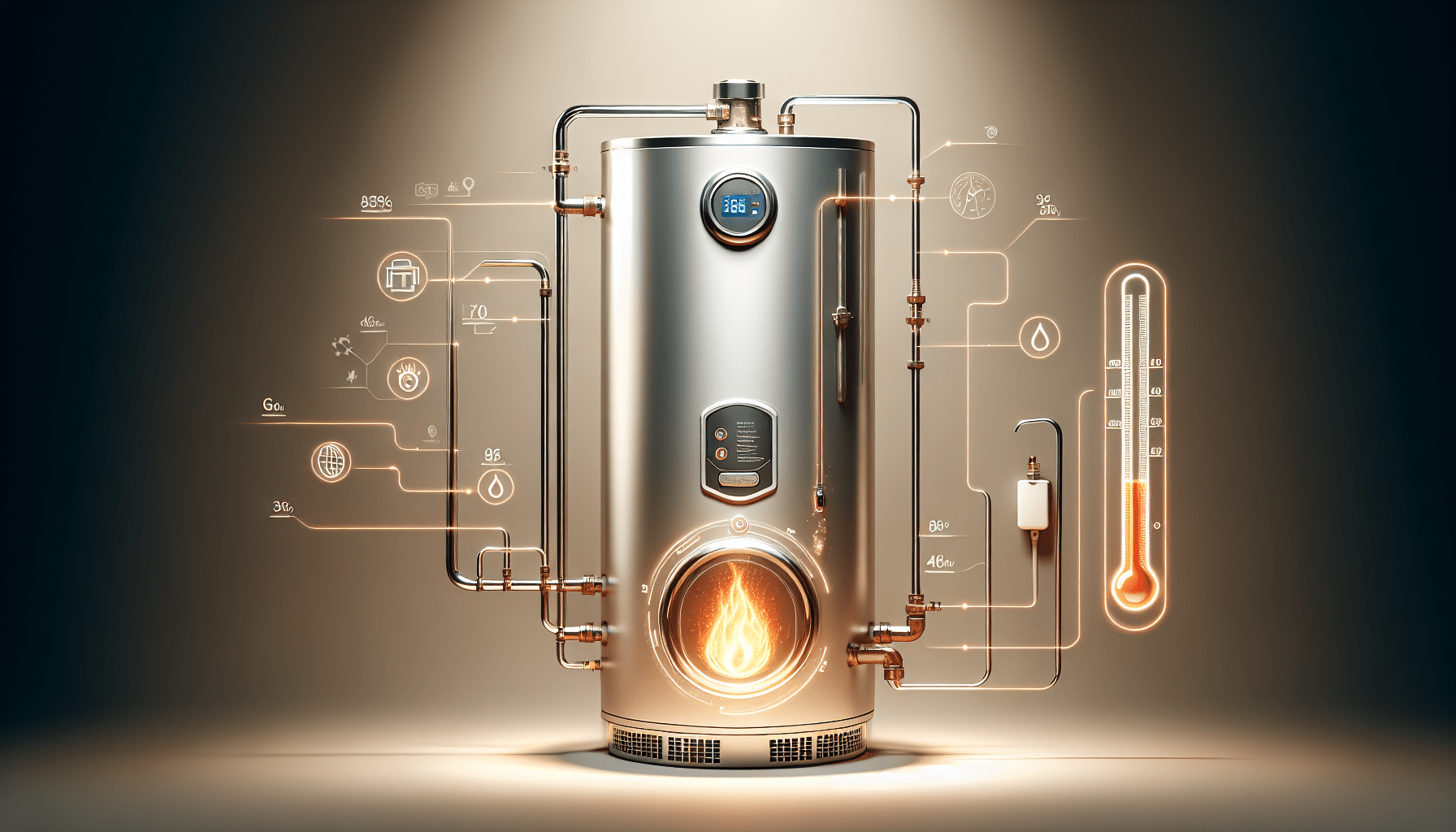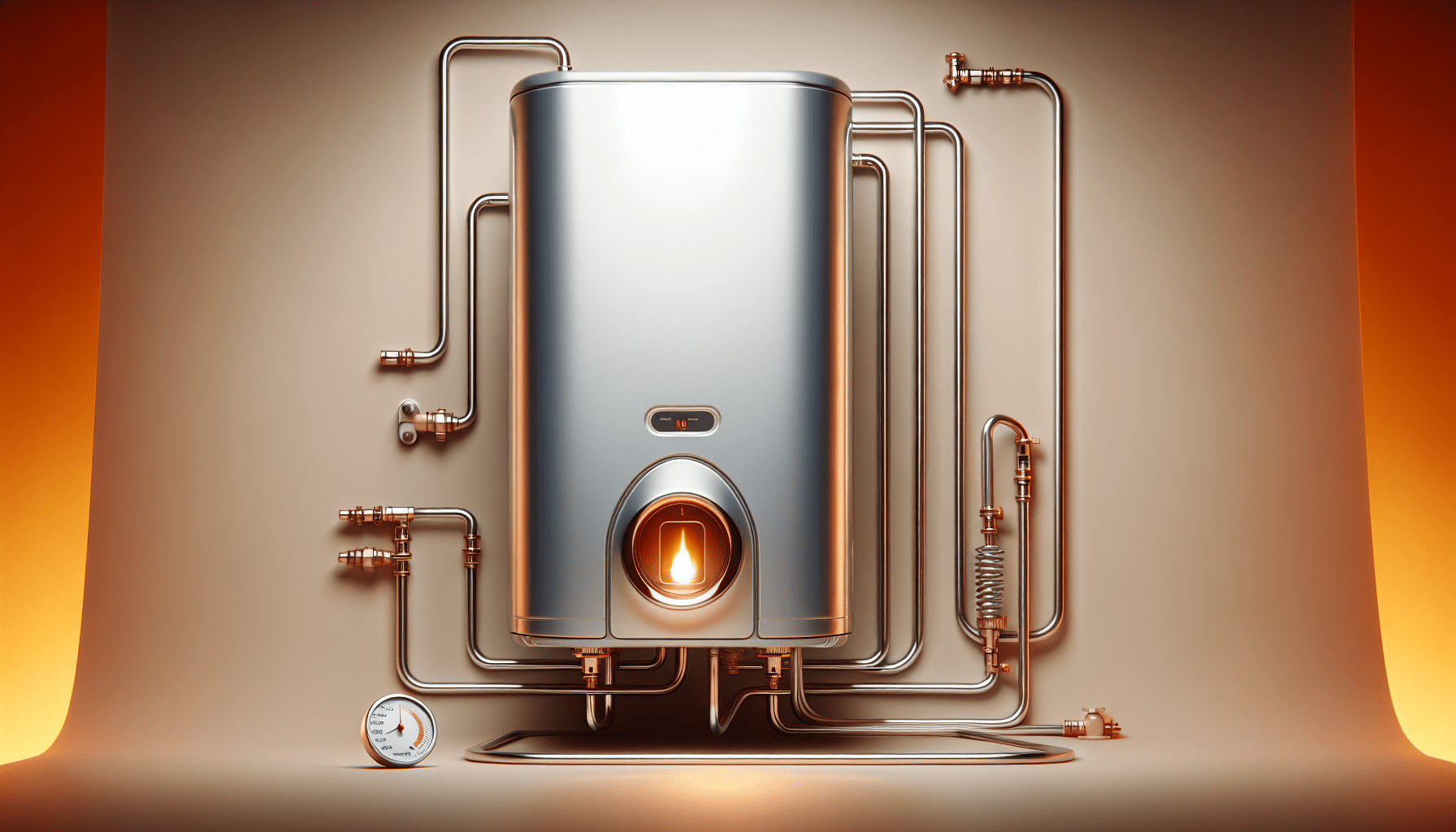What’s your go-to preference when it comes to heating water: gas or electric? It’s a question that often bubbles to the surface in conversations about home efficiency and energy consumption. You may find yourself pondering if one option is more energy-efficient than the other, and how that choice might impact your utility bills, the environment, and even your daily routines. Let’s sift through the details together, shall we?

Understanding Energy Efficiency
Before we get too anchored in specific types of water heaters, it’s worth having a chat about what energy efficiency even means. Essentially, it measures how much energy a heating system converts into useful heat compared to the energy it consumes.
The efficiency of a water heater isn’t just indicated by how fast it heats water, but by how well it utilizes the energy form it employs—whether that’s gas or electricity. As you might expect, various factors come into play, including the type of heater, installation practices, local energy rates, and usage patterns.
Gas vs. Electric: The Basics
Let’s break down these two contenders. Gas water heaters generally rely on natural gas or propane, burning it to produce heat. On the other hand, electric water heaters use electric resistance coils or heat pump technology to warm the water.
For many, the choice between the two often feels like selecting between apples and oranges; each has its merits and quirks. Understanding these can help you decide which is a better fit for your lifestyle.
How Gas Water Heaters Work
Gas water heaters function through a fairly straightforward mechanism. A burner located at the bottom heats the water in the tank, while a thermostat controls the burner’s operation. When you turn on the hot water tap, cold water enters the tank, prompting the burner to kick on until the desired temperature is reached.
Efficiency Ratings of Gas Water Heaters
Gas heaters often come with an Energy Factor (EF) rating, which measures their efficiency. A higher number indicates a more efficient system. Typically, gas water heaters have an EF rating between 0.5 to 0.9. While they might not rock the charts as the most efficient options overall, their potential for lower operating costs can be alluring.
How Electric Water Heaters Work
Electric water heaters, conversely, use powered resistance coils or heat pumps to warm up the water. In tank models, cold water comes in, and the coils heat it directly. With a heat pump unit, the system extracts warmth from the air or ground to heat the water, which can be impressively efficient.
Efficiency Ratings of Electric Water Heaters
Electric water heaters also use the EF rating system, resulting in ratings that can reach as high as 2.0 for heat pump models. However, standard electric heaters often sit around 0.9 to 1.0 on the efficiency scale.
While electric models can appear to edge out gas when it comes to efficiency ratings, this doesn’t provide the whole story.

Energy Costs: A Closer Look
Let’s not skip over one of the most vital components of this discussion: cost. Understanding the cost implications of each option can significantly influence your decision.
Cost of Gas
Gas prices can vary widely depending on the region and market fluctuations, but on average, they tend to be cheaper than electricity. This means that, over time, you might find yourself shelling out less if you opt for a gas water heater.
Cost of Electricity
Electricity rates can behave like moody weather, dramatically fluctuating in different regions and during peak times. While some might find it more convenient, they often face higher monthly bills compared to their gas-using counterparts.
Comparing Overall Costs
When assessing overall costs, it’s essential to consider both the purchase and operating costs of the water heater you choose. Here’s a simplified view:
| Factor | Gas Water Heater | Electric Water Heater |
|---|---|---|
| Purchase Price | Generally less expensive | Can be pricier, especially for heat pumps |
| Monthly Operation Cost | Lower, on average | Can be higher relative to gas |
| Lifespan | Typically 8-12 years | Generally 10-15 years |
| Maintenance Costs | Moderate, checks on gas lines needed | Higher, as electrical components can fail more often |
By weighing these factors and averages, you can get a clearer picture of what each choice might cost you over time.
Heat-Up Time Efficiency
Another notable factor relates to how quickly each type heats water. If you’re often racing against the clock—perhaps trying to get the kids ready for school or yourself ready for work—the speed of your water heater can be a game changer.
Gas Water Heaters
Generally heat water quicker than electric models due to their higher BTU (British Thermal Unit) output. You might appreciate this feature when you suddenly find yourself with unexpected guests and want to avoid a cold shower.
Electric Water Heaters
While electric models may not heat water as swiftly, they tend to maintain hot water availability well due to their consistent operation. In households where there’s a constant demand, this steadiness can be a blessing.
Impact on the Environment
A discussion about energy efficiency isn’t complete without considering the environmental implications. In today’s world, your choice may well reflect your values regarding sustainability.
Gas Water Heaters
While natural gas is often touted as a cleaner energy source compared to coal, it still releases carbon dioxide when burned. Additionally, any leakage during transportation can negate some of its environmental benefits.
Electric Water Heaters
On the other hand, the environmental impact of electric water heaters largely depends on how the electricity being used is generated. If your local grid relies heavily on fossil fuels, the environmental benefits may not be as great. Conversely, if your area harnesses wind, solar, or hydro power, an electric heater could be the more eco-friendly choice.
Maintenance Considerations
Owning any appliance comes with its set of maintenance needs, and your choice in water heater is no different.
Gas Water Heaters
Gas heaters require regular checks to ensure that there are no gas leaks and that the vents are clear for exhaust. Annual maintenance is typically recommended to keep everything running smoothly, and the presence of a pilot light could add the need for occasional checks.
Electric Water Heaters
While electric heaters might not demand as much attention, they’re prone to scaling and sediment buildup, particularly in areas with hard water. Flushing the tank periodically can help maintain efficiency and ensure longevity.
Longevity and Durability
Lastly, how long can you expect each type to last? This can greatly factor into your decision-making process.
Gas Water Heaters
Gas tanks typically boast a lifespan of about 8 to 12 years, with proper care. However, they can sometimes be less forgiving, showing wear relatively quickly without diligent maintenance.
Electric Water Heaters
Electric models often last longer, sometimes reaching up to 15 years or more. If you’re after reliability and extended usage, this could be an attractive characteristic.
Making the Choice That’s Right for You
So, where does that leave you? The ultimate decision boils down to your specific needs, circumstances, and even preferences. Are you primarily concerned about costs? Do you want a more environmentally friendly option? Or perhaps you prioritize speed in heating water?
Questions to Ask Yourself
- Budget: What can you realistically afford both upfront and in the long run?
- Hot Water Demand: How often do you need hot water, and how quickly?
- Maintenance Willingness: How much effort are you ready to commit to upkeep?
- Environmental Concerns: Is it essential for you to minimize your carbon footprint?
Considering these questions can help direct you toward the right choice.
In Summary
You’ve traversed the admittedly winding road of gas versus electric water heaters. Understanding how each type operates, their respective efficiencies, costs, environmental impacts, and maintenance expectations can provide a wealth of knowledge as you make this important decision.
As technology continues to advance, innovations in both electric and gas systems may influence future decision-making and preferences, so stay tuned to changes in this arena.
In the end, whether you opt for a gas water heater or an electric one, the best choice is the one that aligns best with your lifestyle, values, and needs. With informed choices, you’ll be well on your way to enjoying hot water without a hiccup.

